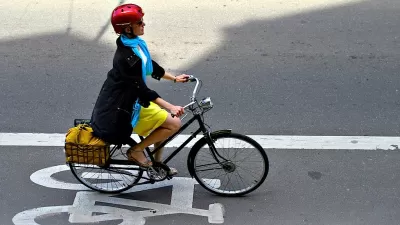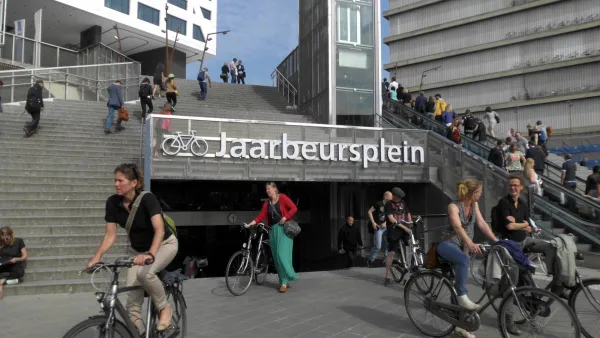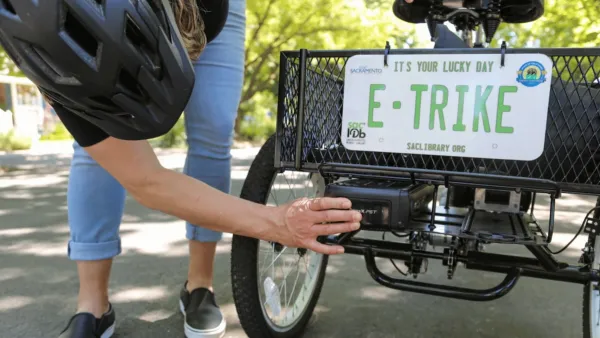In his new book, James Longhurst asks: "Why are most American cities still so ill-prepared to handle cyclists?"

The history professor answers questions during a recent stop on his book tour to promote Bike Battles: A History of Sharing the American Road.
The road is a shared resource. "It’s easy to forget it’s shared between many different users, and that’s the only way the public road had really existed for millennia before one user type became more successful than others."
He uses a model of path dependency to analyze policy. "Cities are the debris fields of history. They’re the leftover physical monuments of decisions that were made and not made in the past." This model offers us the freedom to politically evolve. "[Decisions] may be poured in concrete, but they’re not set in stone."
He touches upon the history of Golden Ages for bicycles in the United States, but notes that the current bike boom is more than a fad because the economics of transportation has fundamentally changed. "Even as gas prices come down, we can’t afford the infrastructure for cars. It doesn’t get cheaper the more of it we build."
Longhurst believes that a change in the perception of who uses bicycles is critically important to changing the politics around bicycling. "If you can make the user group mainstream, so people in cars look at them and think ‘that’s us,’ then voters and taxpayers will see the users simply as the public."
FULL STORY: Bike Battles: Why We Debate Who Owns the Road

Planetizen Federal Action Tracker
A weekly monitor of how Trump’s orders and actions are impacting planners and planning in America.

San Francisco's School District Spent $105M To Build Affordable Housing for Teachers — And That's Just the Beginning
SFUSD joins a growing list of school districts using their land holdings to address housing affordability challenges faced by their own employees.

The Tiny, Adorable $7,000 Car Turning Japan Onto EVs
The single seat Mibot charges from a regular plug as quickly as an iPad, and is about half the price of an average EV.

As Trump Phases Out FEMA, Is It Time to Flee the Floodplains?
With less federal funding available for disaster relief efforts, the need to relocate at-risk communities is more urgent than ever.

With Protected Lanes, 460% More People Commute by Bike
For those needing more ammo, more data proving what we already knew is here.

In More Metros Than You’d Think, Suburbs are Now More Expensive Than the City
If you're moving to the burbs to save on square footage, data shows you should think again.
Urban Design for Planners 1: Software Tools
This six-course series explores essential urban design concepts using open source software and equips planners with the tools they need to participate fully in the urban design process.
Planning for Universal Design
Learn the tools for implementing Universal Design in planning regulations.
Smith Gee Studio
City of Charlotte
City of Camden Redevelopment Agency
City of Astoria
Transportation Research & Education Center (TREC) at Portland State University
US High Speed Rail Association
City of Camden Redevelopment Agency
Municipality of Princeton (NJ)





























